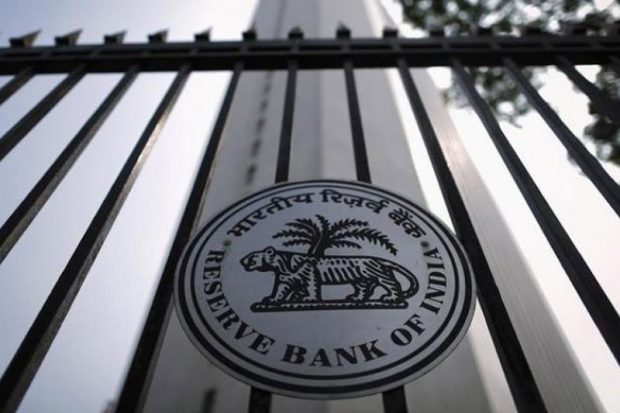
RBI likely to keep repo rate unchanged in June: Report
PTI, May 30, 2019, 10:18 AM IST

Mumbai: The Reserve Bank of India (RBI) may leave repo rate unchanged next week due to uncertainty over oil prices, monsoon, weak transmission of monetary policy and on expected pick-up in inflation, according to a report.
The central bank will also evaluate the implications of policies of the new government for growth and inflation.
In the recently concluded parliamentary polls, the BJP-led alliance secured a majority with the BJP alone winning 303 seats of the 542 seats that went to polling between April and May.
The RBI will announce its second bi-monthly monetary policy on June 6.
“We expect the RBI to keep policy rates on hold during the June meeting,” Goldman Sachs said in a report.
It said crude oil prices would remain high this quarter due to uncertainty around production losses from Iran, and the ramping up of spare capacity.
The report expects some pick-up in food inflation over the course of the year as favourable base effects begin to wane and momentum continues to build as indicated by the recent prints on consumer and wholesale prices.
Headline CPI-based inflation stayed flat at 2.9 per cent year-on-year in April.
Average headline inflation is expected to rise to 3.9 per cent in 2019-20 from 3.4 per cent in 2018-19, with risks to its inflation forecasts broadly balanced, the report said.
“While the IMD (India Meteorological Department) is predicting a normal monsoon, private agency Skymet has reiterated that the probability of El Nino conditions is still over 60 per cent through summer months, with a likelihood of a deficient monsoon,” it said.
The report further said weak monetary policy transmission by the banks is likely going to be a major concern during the upcoming monetary policy review.
While the repo rate has been reduced by 50 basis points to six per cent since February, average bank lending rates have declined by only 5 basis points.
“Overall, considerations related to weak and incomplete monetary transmission are an important factor in our base case for the RBI to hold interest rates unchanged in June, and to make progress on more complete and faster transmission,” it added.
It expects some pick-up in growth over the course of this year, and forecasts real GDP growth to increase from seven per cent in 2018-19 to 7.4 per cent in 2019-20.
There may be another rate cut by the RBI by 25 basis points in the third quarter in 2019 as inflation is likely to remain close to 4 per cent in the year, growth to be below 7.7 per cent, and also as the US Federal Reserves continues to be dovish, said the report.
“Going forward, in 2020, as growth accelerates, headline inflation begins to pick up, and (US) Fed begins to increase rates, we expect pressure to build on the RBI to shift back to a tightening mode,” it said.
It expects the RBI to increase rates next year – one hike of 25 basis points each in first quarter and second quarter of 2020.
The reports also sees the RBI to continue infusing liquidity in the near term, through open market operations (OMOs), foreign exchange tools and regulatory measures.
Udayavani is now on Telegram. Click here to join our channel and stay updated with the latest news.
Top News

Related Articles More

Sensex, Nifty extend losses into 3rd session on foreign fund outflows; all eyes on US Fed’s decision

Markets decline in early trade amid foreign fund outflows; all eyes on US Fed interest rate decision

MRPL commissions bitumen production unit using cutting-edge technology
DGCA issues show cause notice to Akasa Air on violation related to operations manual

Investors’ wealth down Rs 4.92 lakh crore as markets slump
MUST WATCH
Latest Additions

Assembly clears Mysuru Development Authority Bill

Blocked 18 OTT platforms for publishing obscene, vulgar content: Govt

Boy critically injured after tree branch falls on him in Bengaluru

Congress claims party worker ‘died due to tear gas smoke’ during protest in Assam

Four dead in road accident in Kolar
Thanks for visiting Udayavani
You seem to have an Ad Blocker on.
To continue reading, please turn it off or whitelist Udayavani.



















